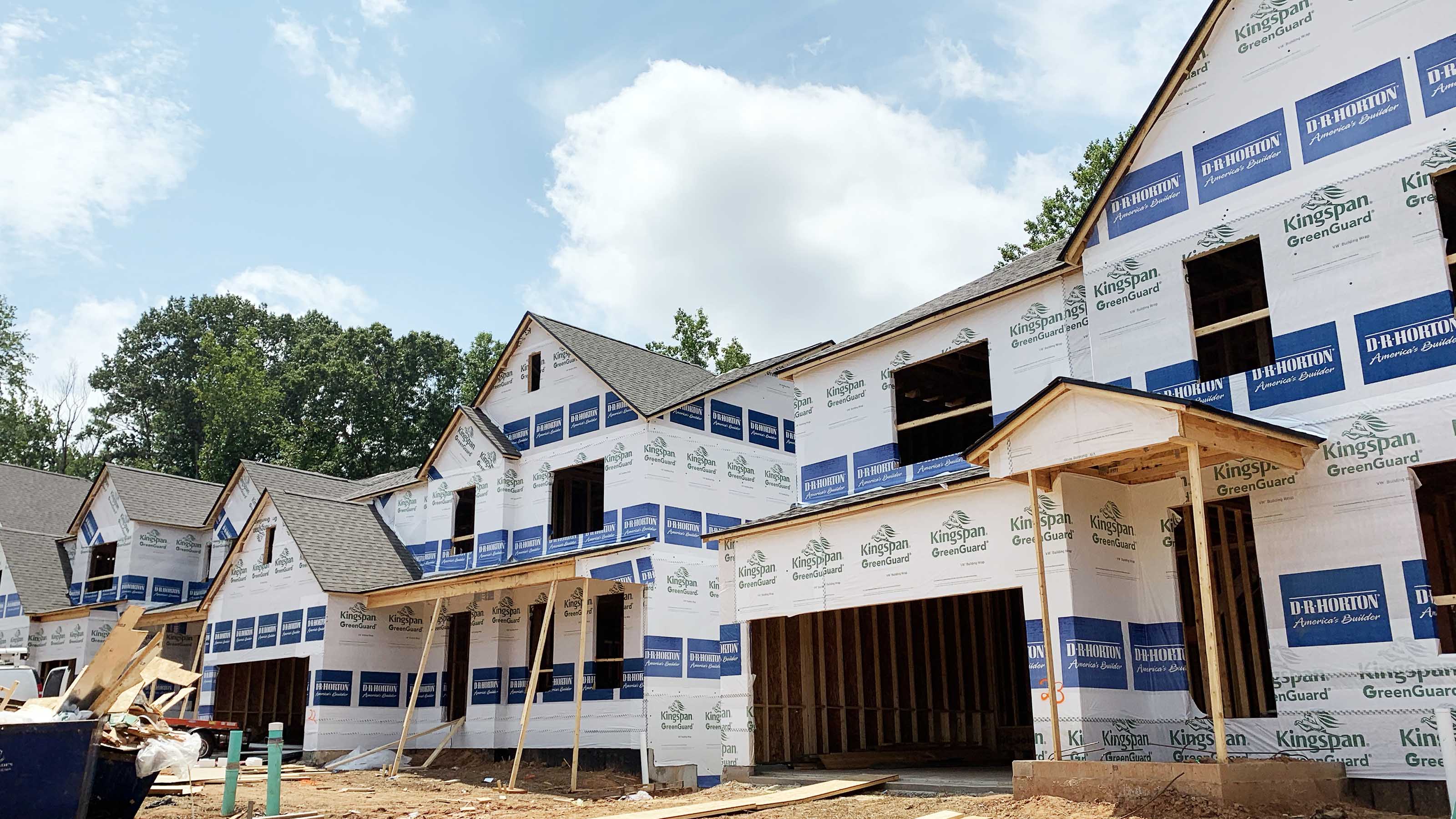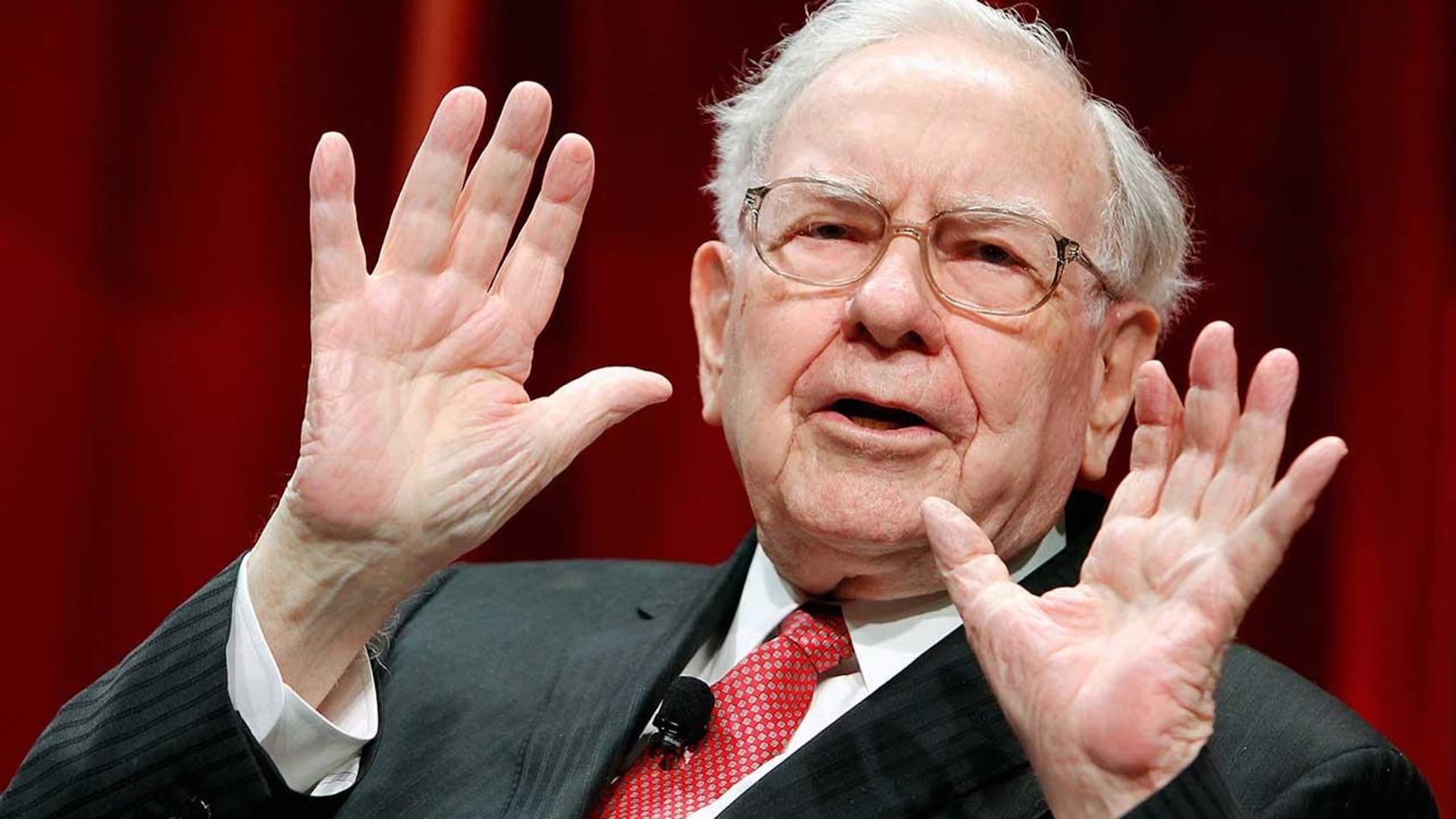5 Top-Rated Housing Stocks With Long-Term Growth Potential
Housing stocks have struggled as a red-hot market cools, but these Buy-rated picks could be worth a closer look.


Profit and prosper with the best of Kiplinger's advice on investing, taxes, retirement, personal finance and much more. Delivered daily. Enter your email in the box and click Sign Me Up.
You are now subscribed
Your newsletter sign-up was successful
Want to add more newsletters?

Delivered daily
Kiplinger Today
Profit and prosper with the best of Kiplinger's advice on investing, taxes, retirement, personal finance and much more delivered daily. Smart money moves start here.

Sent five days a week
Kiplinger A Step Ahead
Get practical help to make better financial decisions in your everyday life, from spending to savings on top deals.

Delivered daily
Kiplinger Closing Bell
Get today's biggest financial and investing headlines delivered to your inbox every day the U.S. stock market is open.

Sent twice a week
Kiplinger Adviser Intel
Financial pros across the country share best practices and fresh tactics to preserve and grow your wealth.

Delivered weekly
Kiplinger Tax Tips
Trim your federal and state tax bills with practical tax-planning and tax-cutting strategies.

Sent twice a week
Kiplinger Retirement Tips
Your twice-a-week guide to planning and enjoying a financially secure and richly rewarding retirement

Sent bimonthly.
Kiplinger Adviser Angle
Insights for advisers, wealth managers and other financial professionals.

Sent twice a week
Kiplinger Investing Weekly
Your twice-a-week roundup of promising stocks, funds, companies and industries you should consider, ones you should avoid, and why.

Sent weekly for six weeks
Kiplinger Invest for Retirement
Your step-by-step six-part series on how to invest for retirement, from devising a successful strategy to exactly which investments to choose.
Housing stocks are under pressure from the Federal Reserve's plan to aggressively hike interest rates as a means of killing inflation. And as a result, some of the price appreciation experienced over the past decade in U.S. housing markets – as well as in housing stocks – has begun to unravel.
"The Fed is determined to cool inflation, and they're willing to throw housing under the bus to do so," Devyn Bachman, senior vice president of research at John Burns Real Estate Consulting, said recently, as reported by Realtor.com. "When you raise [mortgage] rates to the point they're at today, it breaks the back of housing."
Despite the short-term pain the housing market is experiencing, there are still opportunities for investors, particularly those with a long-term outlook.
"While the macroeconomic backdrop and tougher comps in the back half of 2022 are headwinds, we continue to see the single-family REITs [real estate investment trusts] likely benefiting from strong industry fundamentals," says Credit Suisse analyst Sam Choe. "The overall affordability picture indicates renting continues to be the more attractive option vs. owning a home, contributing to strong demand for rentals and good leasing momentum late into peak leasing season."
Choe adds that single-family rental firms are "operating from a position of strength" thanks to high occupancy rates and are "set up nicely to still post strong rental rate growth in the second half of 2022 and into 2023."
With that in mind, here are five housing stocks set for long-term growth. The names featured here all have their hands in the single-family rental market and could continue to benefit from strength in this market. What's more, each boasts a healthy dividend yield and are well-liked by Wall Street analysts.
Data is as of Nov. 7. Dividend yields are calculated by annualizing the most recent payout and dividing by the share price. Analyst ratings are courtesy of S&P Global Market Intelligence. Stocks are listed in reverse order of analysts' consensus recommendation.

American Homes 4 Rent
- Market value: $12.0 billion
- Dividend yield: 2.4%
- Analysts' consensus rating: 1.95 (Buy)
American Homes 4 Rent (AMH, $29.76) is the second-largest owner of single-family rental units in America. It owned 58,961 single-family properties in 22 states as of Sept. 30. The internally managed REIT commenced operations in November 2012 with a focus on acquiring, developing, renovating, leasing and operating single-family homes as rental properties.
A decade later, it continues to use precisely the same business model, only it's a lot bigger and more profitable.
The average home owned by the REIT is 17 years old and almost 2,000 square feet. AMH has a 97.1% occupancy rate and generates an average realized monthly rent of $1,901. Its three biggest markets by city are Atlanta (10.0%), Dallas (7.5%) and Charlotte (6.8%).
Renting continues to be cheaper than the cost of home ownership. Currently, rental payments are estimated to be approximately 20% lower than monthly home ownership costs in the company's top 20 markets. This is the lowest level since 2011.
In 2022, the company's guidance calls for core funds from operations (CFFO) of $1.56 a share at the midpoint, 14.7% higher than a year earlier.
The REIT is unique in that it has an internal development program focusing on built-for-rental homes that leverage its existing property management platform and cater to long-term renters. It has 2,100 to 2,400 built-for-rental homes to be delivered in 2022.
"We believe AMH should receive a valuation premium given its large (and increasing) land bank, low double-digit loss-to-lease ratio, and ability to internally develop homes at a premium to acquisition cap rates," says B. Riley Securities analyst Craig Kucera. The analyst has a Buy rating on AMH stock with a $43 price target, representing implied upside of more than 40% to current levels.

Cavco Industries
- Market value: $26.1 billion
- Dividend yield: 1.2%
- Analysts' consensus rating: 1.75 (Buy)
D.R. Horton (DHI, $75.13) is America's largest homebuilder by volume, operating in 105 markets across 33 states. Its homes range in price from $200,000 to over $1 million. DHI's move into SFRs began in 2020 when several of its homebuilding divisions began leasing some of their single-family homes as rental properties. By the end of its fiscal year 2020, which ends in September, it had 440 completed SFRs, and another 300 finished lots ready for construction.
In November 2021, the company unveiled plans to invest an additional $1 billion in the SFR market in fiscal 2022. By the third quarter, DHI's SFR business had 2,390 completed homes, with another 4,340 lots nearing construction. In the nine months ended June 30, its SFR business generated $489.4 million.
Unlike the other housing stocks featured here, D.R. Horton markets its rental properties for bulk sale. So, for example, roughly 60% of the total revenue generated from its SFR business came from the sale of six single-family rental properties containing 678 total homes.
The rental income from its homes in the first nine months was $16.4 million. Overall, D.H. Horton's rental operations generated $215.1 million (single and multi-family) in pre-tax income, a pre-tax profit margin of 44%.
As of June 30, its SFR inventory was valued at $1.3 billion for 7,710 homes and finished lots. That’s $168,612 per home/lots. As more of the homes get built, the value of its inventory will increase dramatically, as will the revenue from the bulk sale of homes.
There's an argument that all large homebuilders should have a rental business.

Tricon Residential
- Market value: $2.2 billion
- Dividend yield: 2.8%
- Analysts' consensus rating: 1.69 (Buy)
Tricon Residential (TCN, $8.19) CEO Gary Berman faced harsh criticism earlier this year after a "60 Minutes" interview where he said the "low-maintenance lifestyle" that comes along with renting a home is "very compelling" for millennials. He added that the group "tends to be our primary resident."
While Berman's comments might have been a bit tone-deaf, the reality is that Tricon and the rest of the housing stocks in the single-family rental industry are providing a service just like anyone else. Therefore, it's in the company's best interest to provide its renters the finest amenities and maintenance services so they won't want to leave their homes.
It seems to be doing a good job.
Tricon currently owns roughly 33,000 single-family rental homes across the U.S. And while only 2% of the estimated 16 million single-family rental homes are owned by institutions, TCN expects to be able to grow its portfolio to 50,000 homes by the end of 2024.
The company's average home is 1,676 square feet, and generates average monthly rent of $1,670. TCN expects the work-from-home trend to continue, and believes this will drive renters from apartments to single-family homes. Its average rent per square foot is $1.00, 14 cents cheaper than Invitation Homes (INVH) – another one of the top-rated housing stocks featured here.
The company's annualized turnover rate is 18.5%, 380 basis points less than Invitation Homes and 1,080 basis points less than American Homes 4 Rent. (A basis point = 0.01%.)
The average Tricon resident has a household income of $90,000, an average FICO score of 650, is 40 years old, and pays approximately 23% of their income to rent. In cities like Toronto and New York, you can be sure homeowners are paying a lot more than 23% of their income toward their mortgage and maintenance.
TCN's three largest markets are Georgia (22% of net operating income), Florida (18%), and Texas and Arizona (13% apiece). All of its urban markets are growing faster than the national average. As a result, its occupancy rates in those markets are between 97% and 99%.
Millennials might not like what Berman had to say, but Tricon's business model appears to be a long-term winner among housing stocks.

Invitation Homes
- Market value: $18.2 billion
- Dividend yield: 2.8%
- Analysts' consensus rating: 1.67 (Buy)
Invitation Homes (INVH, $29.71) joined the S&P 500 on Sept. 19. It is the largest owner of single-family rental homes in the country. As of June 30, INVH owned 83,093 homes, up from 82,758 at the end of March. It also owns 3,261 through joint ventures that it manages.
Despite the Fed aggressively raising interest rates in the third quarter, INVH posted solid financial results. It generated $569 million in revenue over the three-month period, up 11.6% from a year earlier. Its average occupancy was high at 97.5%. The turnover rate, representing the number of unoccupied homes during Q3 2022, was 6.2%, down from 6.3% in the year-ago period.
Additionally, net income in the quarter was $79 million, 14.4% higher than in Q3 2021. On a same-store basis, its net operating income (NOI) increased 12.4%, while its adjusted funds from operations (AFFO) were up 12.5% to $0.36.
The company also has an impressive growth strategy. In Q3, Invitation Homes and its joint ventures acquired 955 homes for $426 million. INVH focuses on high-growth markets in the U.S., with Atlanta, South Florida and Southern California its three biggest revenue drivers.
Another area for growth is partnering with large housing stocks such as PulteGroup (PHM). In July 2021, INVH announced its strategic relationship with Pulte, which will see it purchase 7,500 new homes from the homebuilder over the next five years.
Those who want to position for long-term growth in INVH can get the shares at a big discount today compared to where they were trading a year ago. The stock is down about 34% year-over-year – due in part to a nearly 8% post-earnings drop. This came as Invitation Homes lowered its full-year FFO outlook, though Mizuho Securities analyst Haendel St. Juste believes the stock will bounce back as investors better understand the drivers behind the lowered outlook, including "stubbornly high existing bad debt, higher real estate taxes and one-timers including hurricane-related expenses and minor litigation settlement."
Juste has a Buy rating on INVH stock and a $39 price target, representing implied upside of 22% from current levels.

Sun Communities
- Market value: $16.5 billion
- Dividend yield: 2.7%
- Analysts' consensus rating: 1.55 (Buy)
Sun Communities (SUI, $130.71) has been one of the best housing stocks for investors over the past decade, returning 336% in cumulative shareholder returns. That compares to 164% for the S&P 500.
To get those kinds of returns, Sun has acquired $11.5 billion in properties since 2010. Today, the REIT owns, operates or has an interest in 661 manufactured housing (MH), recreational vehicle (RV) and marina properties. These properties contain more than 180,000 developed sites and more than 45,900 boat slips.
The company generated $932.6 million in revenue in the third quarter, 36.3% higher than a year earlier. Its core funds from operations in the quarter were $2.65 a share, 25.6% higher than in Q3 2021.
Sun generates 60% of its revenue from its real property operations. The REIT owns the land on which the manufactured homes and RVs sit. It also owns the utility, connections, streets, lighting and other related infrastructure necessary to provide a nice experience. The owners of the manufactured homes or recreational vehicles lease the sites from SUI.
The REIT's other revenue generators are service, retail, dining and entertainment. They account for 21% of overall revenue. The sale of MHs to current and prospective residents at their 661 properties accounted for 16% of the REIT's revenue in the third quarter.
Where do single-family home rentals fit into the equation?
Sun operates a rental program for prospective tenants. At the end of 2021, it had 9,870 leased homes occupied by renters. New and pre-owned homes are purchased for the rental program, and the leases are one year. In 2021, SUI received 55,000 applications to live at its properties. Once it has a new renter, the sales process converts the renter into a buyer.
In the second quarter, the rental program generated revenue of $31.4 million. Although it was down 7.4% year-over-year, the rental program's net operating income margin is healthy at 81%.
Profit and prosper with the best of Kiplinger's advice on investing, taxes, retirement, personal finance and much more. Delivered daily. Enter your email in the box and click Sign Me Up.

Will has written professionally for investment and finance publications in both the U.S. and Canada since 2004. A native of Toronto, Canada, his sole objective is to help people become better and more informed investors. Fascinated by how companies make money, he's a keen student of business history. Married and now living in Halifax, Nova Scotia, he's also got an interest in equity and debt crowdfunding.
-
 The New Reality for Entertainment
The New Reality for EntertainmentThe Kiplinger Letter The entertainment industry is shifting as movie and TV companies face fierce competition, fight for attention and cope with artificial intelligence.
-
 Stocks Sink With Alphabet, Bitcoin: Stock Market Today
Stocks Sink With Alphabet, Bitcoin: Stock Market TodayA dismal round of jobs data did little to lift sentiment on Thursday.
-
 Betting on Super Bowl 2026? New IRS Tax Changes Could Cost You
Betting on Super Bowl 2026? New IRS Tax Changes Could Cost YouTaxable Income When Super Bowl LX hype fades, some fans may be surprised to learn that sports betting tax rules have shifted.
-
 The 24 Cheapest Places To Retire in the US
The 24 Cheapest Places To Retire in the USWhen you're trying to balance a fixed income with an enjoyable retirement, the cost of living is a crucial factor to consider. Is your city the best?
-
 How to Hedge Against Trump's Tariffs
How to Hedge Against Trump's TariffsDonald Trump is taking action on tariffs and this could have a big impact on public companies. Here's how investors can prepare.
-
 7 Stocks Warren Buffett Is Buying (and 10 He's Selling)
7 Stocks Warren Buffett Is Buying (and 10 He's Selling)Warren Buffett Warren Buffett's Berkshire Hathaway sold Apple and Snowflake but picked up Ulta Beauty and Heico, among other moves in Q2.
-
 Stock Market Today: Stocks Enjoy Longest Winning Streak in Two Years
Stock Market Today: Stocks Enjoy Longest Winning Streak in Two YearsMarkets continued to rally on hopes the Fed is done with interest rate hikes.
-
 Stock Market Today: China Woes Weigh on Stocks; Homebuilders Get a Buffett Boost
Stock Market Today: China Woes Weigh on Stocks; Homebuilders Get a Buffett BoostThe major market indexes closed lower on Tuesday after China unexpectedly cut several key interest rates.
-
 5 Stocks to Sell or Avoid Now
5 Stocks to Sell or Avoid Nowstocks to sell In a difficult market like this, weak positions can get even weaker. Wall Street analysts believe these five stocks should be near the front of your sell list.
-
 Best Stocks for Rising Interest Rates
Best Stocks for Rising Interest Ratesstocks The Federal Reserve has been aggressive in its rate hiking, and there's a chance it's not done yet. Here are eight of the best stocks for rising interest rates.
-
 The Five Safest Vanguard Funds to Own in a Volatile Market
The Five Safest Vanguard Funds to Own in a Volatile Marketrecession The safest Vanguard funds can help prepare investors for market tumult but without high fees.
